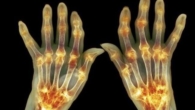
Problems when walking, what this can mean
0
Dementia includes a whole complex of neurodegenerative diseases of the brain. Each of them carries its own risks and is dangerous in its own way. If you have not taken good care of your cognitive health throughout your life, then in old age there is a high probability of developing dementia in one form or another.
But, like any disease, problems with the brain and neurons have their own symptoms. Sometimes they manifest themselves in memory loss, absent-mindedness, and other similar signs. And in some cases, your body gives you signals during physical activity.
The most common form of dementia is dementia with Lewy bodies. It progresses slowly and imperceptibly. People over 65 are at risk. At the same time, this disease affects the memory departments to the least extent, because the brain is multifaceted, and some of its parts are responsible not only for mental, but also for motor functions.
British doctors have identified 5 main symptoms of dementia with Lewy bodies, which are manifested while walking:
- Slow movements;
- Problems with walking;
- Flickering of the legs;
- Excessive stiffness and rigidity of the gait;
- Problems with balance and falls.
If at least one of these signs begins to appear too often, this is a reason to consult a doctor. In the early stages of the disease, it is easy to confuse it with Alzheimer's disease, so the diagnosis should be clarified by various specialists.
Dementia with Lewy bodies is characterized by abnormal accumulations of protein (the bodies themselves) in brain cells. Over time, they can accumulate in different parts, but most often their accumulations are found in areas responsible for thinking, movement, visual perception, sleep and alertness.
In the later stages of the disease, the patient may experience problems with sleep, experience tremors in the hands, see visual hallucinations, experience difficulty swallowing, and also observe kidney and intestinal failure. Often, people have sharp mood changes, the level of anxiety increases, and signs of depression appear.
No form of dementia can be completely cured. But you can undergo a course of treatment that will help slow down the degenerative processes. Patients are also prescribed physiotherapy, occupational therapy, and cognitive-stimulating therapy.









Leave a Reply